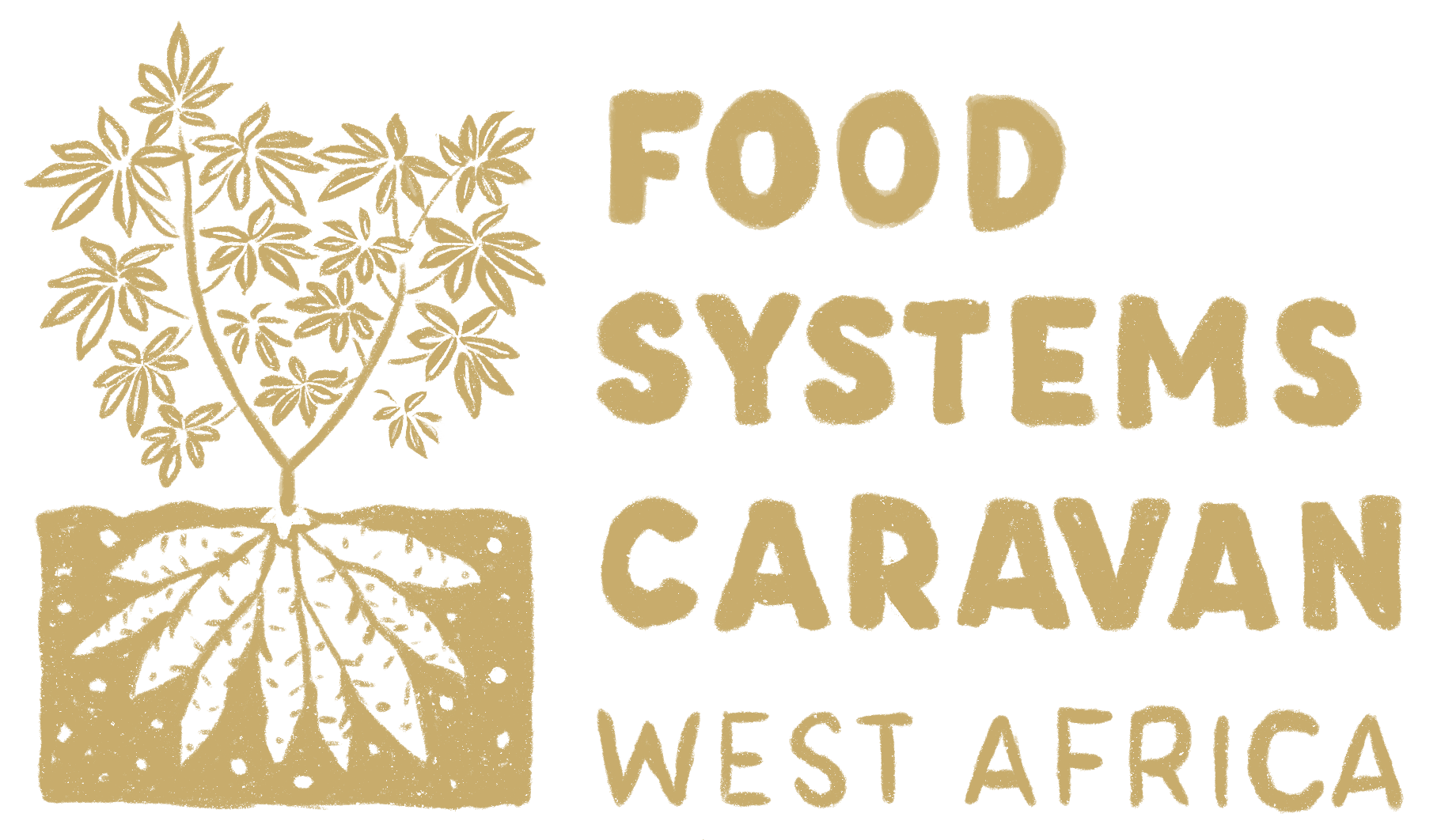[Français ci-dessous] The caravan visited the remarkable Songhai project, in Porto-Novo, Benin. Also referred as the Songhai movement by its founder and director, Godfrey Nzamujo, the project has become one of the main references in West Africa in what comes to the development of endogenous agroecological approaches adapted to local food systems, through merging modern scientific evidence with traditional knowledge. The center works as an integrated whole, including the production and processing of agricultural and animal products, as well as research and education. The center counts with around 250 trainees, who learn about integrated organic aquaculture and horticultural systems, sustainable animal husbandry, food processing, and a number of techniques based on agroecological principles. “What we seek is to inspire youth into understanding the interrelation between all the elements in the natural and social systems, and to apply these principles in their projects and lives” says Godfrey Nzamujo. Nzamujo taught microbiology at a university in the United Sates but decided to return to Africa after realizing the enormous unexploited human, environmental and economic potential of the African continent, particularly in what comes to the development of truly sustainable and integrated food systems that care for human and the earth’s health. Because the techniques work and because the center has caught international attention, branches of the movement and related projects are sprouting in different parts of Africa. As it can be read in the project’s website, “Songhai is a developing process that is in continuing evolution, it is a laboratory for Africa and the world, a prime mover for the creation of a better tomorrow”. Learn more
La caravane a visité le remarquable projet Songhai, à Porto-Novo, au Bénin. Appelé aussi de mouvement Songhaï par son fondateur et directeur, Godfrey Nzamujo, le projet est devenu l’une des principales références en Afrique de l’Ouest pour ce qui concerne le développement d’approches agro-écologiques endogènes adaptées aux systèmes alimentaires locaux, par la fusion des connaissances scientifiques modernes et des savoirs traditionnelles. Le centre fonctionne comme un système intégré, incluant la production et la transformation de produits agricoles et animaux, ainsi que la recherche et l’éducation. Le centre compte environ 250 stagiaires qui s’initient à l’aquaculture et aux systèmes horticoles biologiques intégrés, à l’élevage durable, à la transformation des aliments et à un certain nombre de techniques fondées sur les principes agro-écologiques. “Ce que nous cherchons, c’est d’inspirer les jeunes à comprendre l’interrelation entre tous les éléments des systèmes naturels et sociaux, et à appliquer ces principes dans leurs projets et leurs vies ” dit Godfrey Nzamujo. Nzamujo a enseigné la microbiologie dans une université aux États-Unis, mais a décidé de retourner en Afrique après avoir réalisé l’énorme potentiel humain, environnemental et économique inexploité du continent africain, en particulier en ce qui concerne le développement de systèmes alimentaires véritablement durables et intégrés qui prennent soin de la santé humaine et terrestre. Parce que les techniques fonctionnent et parce que le centre a attiré l’attention internationale, des branches du mouvement et des projets connexes se développent dans différentes parties de l’Afrique. Comme on peut le lire sur le site web du projet, “Songhaï c’est un processus de développement en pleine évolution, un laboratoire pour l’Afrique et le monde, un ferment pour demain”. Pour en savoir plus, consultez la page








